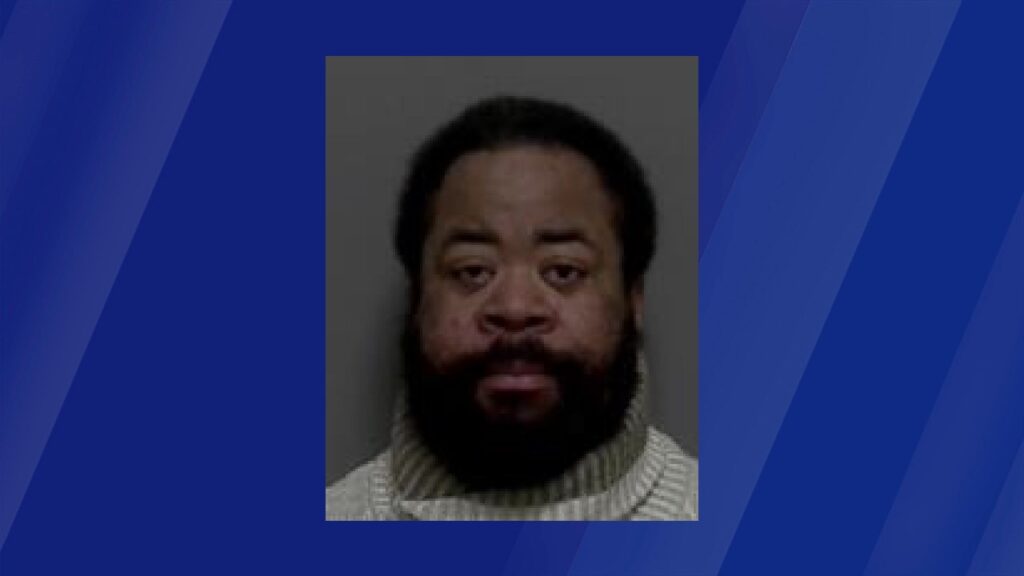A former youth wrestling coach, charged with criminal sexual conduct, is heading to trial. Here’s what Hennepin County knew about him a decade earlier.
[anvplayer video=”5120755″ station=”998122″]
Mustafa Shabazz received the termination letter in the spring of 2013.
An internal investigation found Shabazz, a juvenile correctional officer at the time, engaged in inappropriate contact with a 14-year-old girl who had been in the Hennepin County Juvenile Detention Center.
Shabazz admitted to contacting the girl on Facebook and giving her his cellphone number. He also admitted to meeting her alone in a motel room after she’d cut off her Electronic Home Monitoring bracelet.
“Those are beyond grooming behaviors,” said Irene van der Zande, an expert in child protection. “I would call those abusive behaviors.”
But the internal investigation is confidential because instead of being fired, Shabazz was allowed to resign.
Child protection advocates say the details from nearly a decade ago uncovered by 5 INVESTIGATES reveal a “system failure.”
The troubling details only recently came to light after Shabazz was accused of sexually abusing two young girls while working as a youth wrestling coach in the West Metro, according to court records obtained by 5 INVESTIGATES.
The 45-year old was charged in 2020 with two counts of criminal sexual conduct. A jury in Hennepin County acquitted Shabazz on the first charge after a trial last month. The second trial in Scott County is expected to start on Monday.

Through his defense attorneys, Shabazz has repeatedly declined to comment on the criminal charges, as well as the findings from the county’s internal investigation in 2013. In court filings, they argued Shabazz was never charged criminally in that incident and the county didn’t find that any sexual misconduct had occurred.
But child protection advocates say the details from nearly a decade ago uncovered by 5 INVESTIGATES reveal a “system failure.”
“We want to create a culture of safety for kids,” van der Zande said. For the last 33 years, she’s run KidPower International, a non-profit dedicated to child protection and safety.
“These violations destroy that.”
“Flagrant disregard of appropriate boundaries”
Then-Superintendent of the Juvenile Detention Center Karen Kuglar found Shabazz’s conduct warranted his firing in April 2013.
“Based on the seriousness of your misconduct and your flagrant disregard of appropriate boundaries and the proper role of a [Juvenile Correctional Officer], I have determined that there is just cause to discharge you from County employment,” Kuglar wrote in Shabazz’s termination letter.
But at the top of that letter are the hand-written words, “RESCINDED ALLOWED TO RESIGN.”
The resignation ensured the details would not appear in public employment records, news headlines or Google searches when Shabazz started coaching children.
“It allowed him to go off into the world without something clearly on the record,” van der Zande said after reviewing the dismissal letter.
It also means a Hennepin County spokesperson cannot answer why Shabazz was ultimately allowed to resign “due to data practices laws.”
“System failure”
However, 5 INVESTIGATES recently found the old termination letter tucked in a court filing as part of the ongoing criminal case in Scott County.
Police in Shakopee began investigating Shabazz in February 2020 over allegations that he inappropriately touched an 11-year-old girl during wrestling practices and tournaments.
According to the criminal complaint, the child told investigators Shabazz also friended her on Facebook, had long phone conversations with her and offered her private wrestling lessons – allegations similar to what Hennepin County found almost a decade ago.
“It was a system failure,” said Artika Roller, executive director of the Minnesota Coalition Against Sexual Assault. “There should have been things put in place where he was not able to actually have access to that youth in that way.”
When asked if she believed Shabazz should have been coaching youth, van der Zande said “no” without hesitation.
“If you find that somebody has behaved in an inappropriate or unsafe way with young people, they should not be allowed to be in a position of trust with them again,” she said.